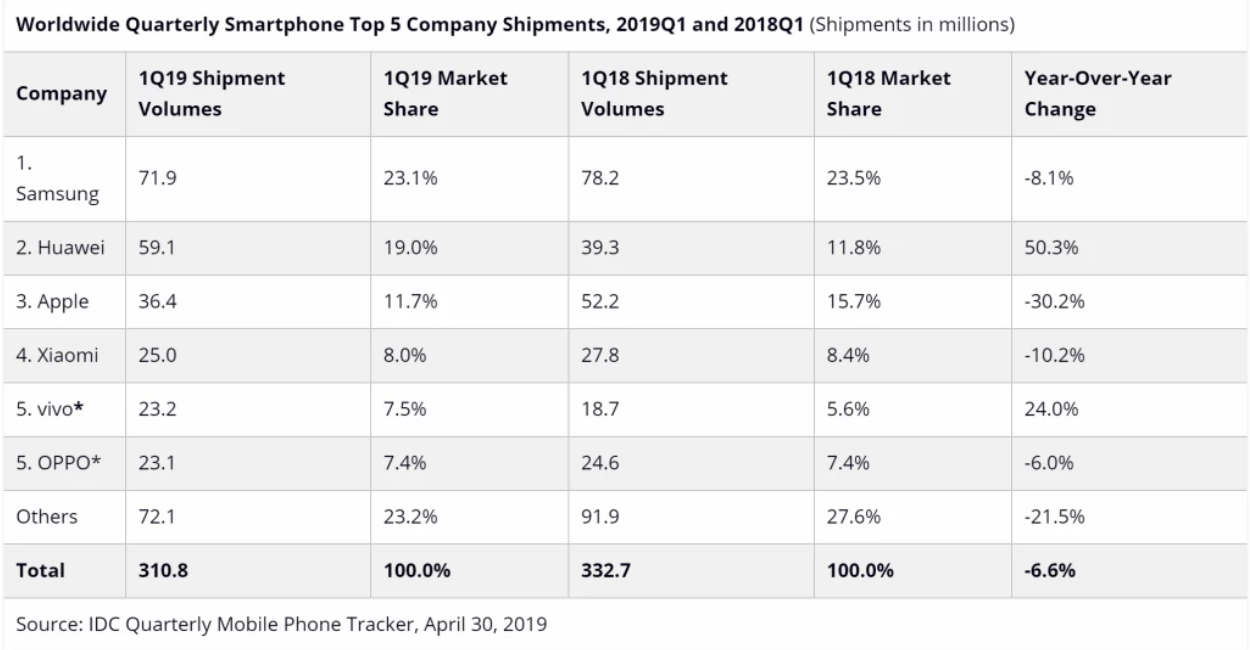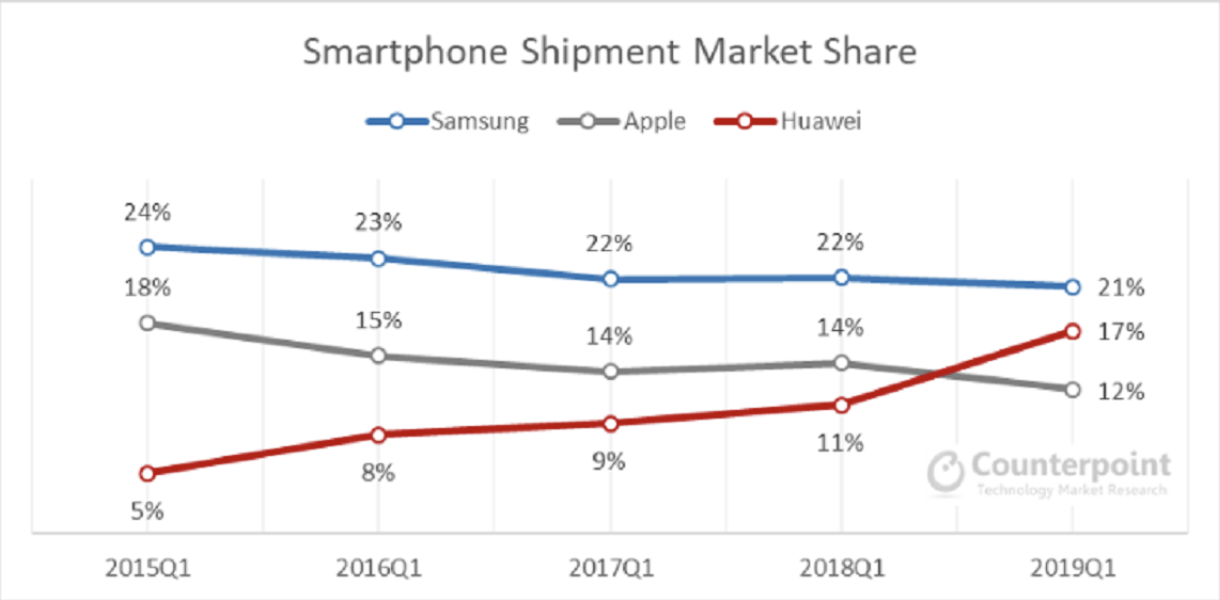There’s no need for a preamble let’s just cut to the chase and say it: Apple Inc.’s (NASDAQ:AAPL) smartphone business is fast crumbling (thank God for its services ambitions), and one of Trump’s most hated companies is wiping the floor with the American icon. Apple’s iPhone shipments in the Middle Kingdom have shrunk for the second quarter running, with the company put to the ropes by China’s telecom upstart, Huawei. From seemingly nowhere, Huawei has become Apple’s biggest boogie man, even managing to steal market share.
According to IDC data, Apple shipped 36.4 million units during Q1 2019, a massive 30.2 percent Y/Y drop and good for just 11.7 percent market share percent compared to 15.2 percent a year ago. That marked the biggest decline among the top 5 vendors.
In sharp contrast, Huawei shipped 59.1 million units, good for a market-beating 50.3 percent Y/Y growth and 19.0 market share compared to 11.8 percent for last year’s corresponding period.
Apple no longer releases unit sales for the iPhone.

(Click to enlarge)
Source: VentureBeat

(Click to enlarge)
Source: CounterPoint Research
Seismic shift
For seven consecutive years, Samsung and Apple were the two most dominant smartphone makers in the world. However, a seismic shift was quietly taking place behind the scenes.
From relative obscurity, Huawei was rising through the ranks to successfully dismantle the smartphone duopoly. This company made its intentions known in Q2 2018 when it managed to dislodge Apple from the first runners-up slot for the first time ever. Huawei managed to keep the slot for two quarters before Apple fought back and regained the silver spot in Q4 2018. But its victory was only to be short-lived and Huawei is back on top-- this time with a bang.
Related: San Francisco’s $8 Billion Nuclear Housing Project
Huawei has grown so big so fast that it’s becoming increasingly hard to see how Apple will keep up--unless it doesn’t plan to keep up at all. According to Shobhit Srivastava, research analyst at Asian business intelligence firm, Counterpoint, Huawei is very likely to remain ahead of the Cupertino, California, company for the rest of the year.
So, what exactly is going on? Apple has even been dethroned as the World’s Most Innovative Companies according to Fast Company’s latest rankings. Huawei has been releasing new exciting products at a regular cadence whereas Apple appears content simply making updates and iterations to its existing line of product. Huawei’s new brands such as the Mate X, P20 and P30 have been well received across the globe and managed to evade the “cheap iPhone knockoffs” tag the likes of Xiaomi phones often struggle with. Last year, Huawei shipped a staggering 200 million units thanks to the high-flying P20 series and Honor brands.
The company has also established a well-rounded portfolio in it’s China home turf that helps it target all segments.
Meanwhile, Apple’s long-drawn court battle with Qualcomm Inc.(NASDAQ:COM) has not been helping matters at all as far as its 5G ambitions go. Qualcomm has been the main supplier of Apple’s modems and the years-long litigations by the mobile tech company effectively scuttled its 5G strategy. Only last month, UBS analyst Timothi Arcuri expressed fears that Apple may not be able to ship a 5G smartphone by 2020 as per earlier targets.
Apple investing in the future
Huawei would better not start resting on its laurels though. Apple recently agreed to pay nearly $5 billion to Qualcomm to settle the feud and with a little luck might be able to get its 5G game back on track in good time.
Meanwhile, as Fast Company noted, Apple is busy investing in its own processors. By developing the capability to make chips that run data intensive operations like AI and high-end photography in-house, Apple is laying the foundation for many years. It also minimizes the risk of overdependence on third-party manufacturers such as Qualcomm.
By Alex Kimani for SafeHaven.com
More Top Reads From Safehaven.com:
















